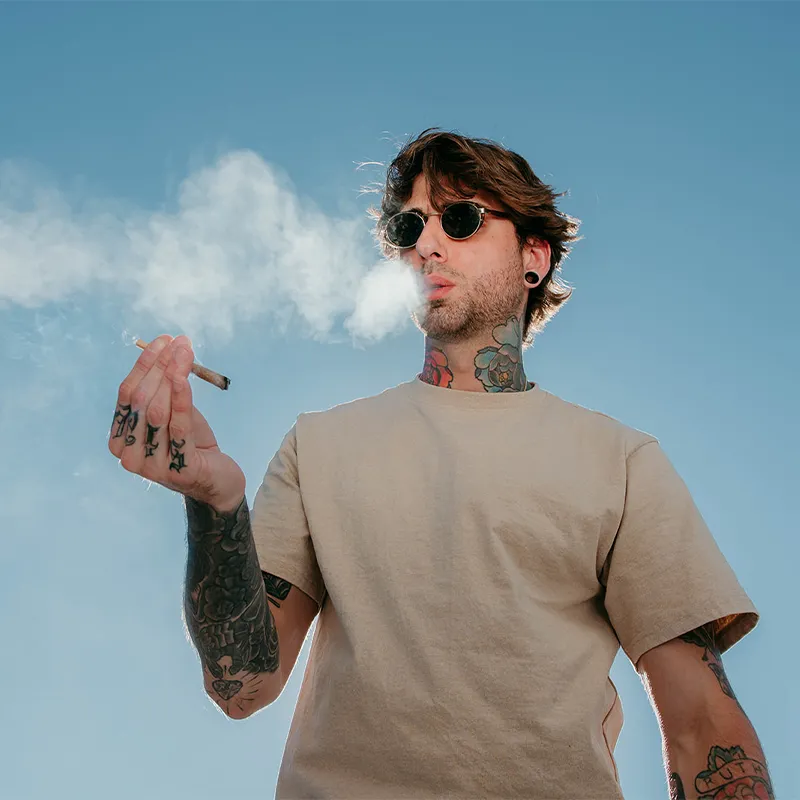Raising kids in today’s world is a whole different ballgame than when we were growing up. As a parent who uses medical marijuana, you might find yourself wondering how to have "the talk" with your children about what’s in that little bottle or why you step outside for a moment of peace. It’s a conversation that can feel tricky, especially with all the stigma that still surrounds cannabis.
But kids are smart, and they’re curious. They’re going to ask questions, and when they do, it’s important to have honest and age-appropriate answers. In this guide, we’re going to help you navigate that conversation, giving you the tools to talk to your kids about medical marijuana in a way that reduces stigma and helps them understand that, for you, it’s medicine.
Start with the Basics
When talking to your kids about medical marijuana, it’s important to start with the basics—explain that it’s medicine prescribed by a doctor, just like any other treatment. You can compare it to something they’re already familiar with, like how some people need to take medicine for allergies or a cold. By framing cannabis as medicine, you’re setting the stage for them to understand that it’s something you use to feel better, not something to be afraid of.
For younger children, keep it simple. You might say, “This is a special kind of medicine that helps mommy or daddy feel better. It’s not for kids, and it’s important to use it carefully, just like any other medicine.” Older kids might have more questions, and that’s okay too. Be open and honest, answering their questions as they come up, but always reinforcing that this is something you’re using under the guidance of a healthcare professional.
Breaking Down Misconceptions
One of the biggest challenges in talking to your kids about medical marijuana is addressing the stigma that still exists around cannabis. They might hear things at school or from friends that make marijuana the bad guy, so it’s important to tackle these misconceptions head-on. Explain to them that while some people might misuse cannabis, medical marijuana is used under a doctor’s care to help with specific health issues—just like any other prescription.
You can also talk about how society’s views on cannabis are changing. Let them know that more people are starting to understand the benefits of medical marijuana, but not everyone is there yet. Encourage them to ask questions and express their thoughts, and use these opportunities to educate them on the differences between recreational and medical use. By being open and honest, you’re helping to get rid of the stigma in your own home and setting an example for how they can approach the topic with others.
Keeping the Conversation Age-Appropriate
When you’re talking to your kids about medical marijuana, it’s all about keeping it real but also keeping it simple, depending on how old they are. For the little ones, you don’t need to get into all the details. Just let them know, “This is a kind of medicine that helps me feel better, but it’s not for kids.” That’s usually enough to satisfy their curiosity without overwhelming them.
As they get older, they might start asking more questions, and that’s when you can go a bit deeper. You can explain that different medicines do different things, and cannabis is just one option for certain health problems. It’s also a good time to talk about why it’s important to use it
the way the doctor says and to follow the rules. By keeping the conversation age-appropriate and relaxed, you help them understand without making it a big deal.
Be Open to Their Questions
Kids are naturally curious, and they’re going to have questions—sometimes ones you might not expect. The key here is to stay open and honest while keeping things chill. If they ask why you’re using medical marijuana, you can explain that it’s something your doctor recommended to help with a specific health issue. It’s important to let them know that it’s okay to ask questions and that you’re there to give them the answers they need.
You might even get some tough questions like, “Isn’t marijuana bad for you?” or “Why can’t I use it if it’s medicine?” These are great opportunities to talk about how medical marijuana is different from recreational use and why it’s important to follow a doctor’s advice. Let them know that just like other medicines, it’s not something everyone needs, and it’s definitely not something kids should use. By being open and approachable, you’re helping them understand and respect your choices.
Setting Boundaries and Leading by Example
As a parent, one of the most important things you can do is set clear boundaries when it comes to your medical marijuana use. Make sure your kids understand that, just like with any other medication, it’s something that’s off-limits to them. You can explain that it’s kept in a safe place, and they shouldn’t touch it—just like they wouldn’t play with your other medicines.
Leading by example is key here. When your kids see that you’re responsible with your use—following the doctor’s orders and keeping it out of reach—they’re more likely to respect those boundaries. It’s also a good idea to explain why these rules are in place so they understand that it’s not about keeping something from them but about keeping everyone safe and healthy.
Keep the Conversation Going
Talking to your kids about medical marijuana doesn’t have to be a one-time thing. As they grow and their understanding deepens, keeping the conversation going is important. Check-in with them every now and then to see if they have any new questions or thoughts about it. By staying open and approachable, you’re creating an environment where they feel comfortable coming to you with any concerns or curiosities.
By being honest, setting boundaries, and keeping the lines of communication open, you’re not just reducing the stigma around cannabis, but also teaching your kids valuable lessons about responsibility and trust. And as always, it’s a good idea to consult with your physician if you have any concerns about how to approach this topic with your kids.








.svg)

